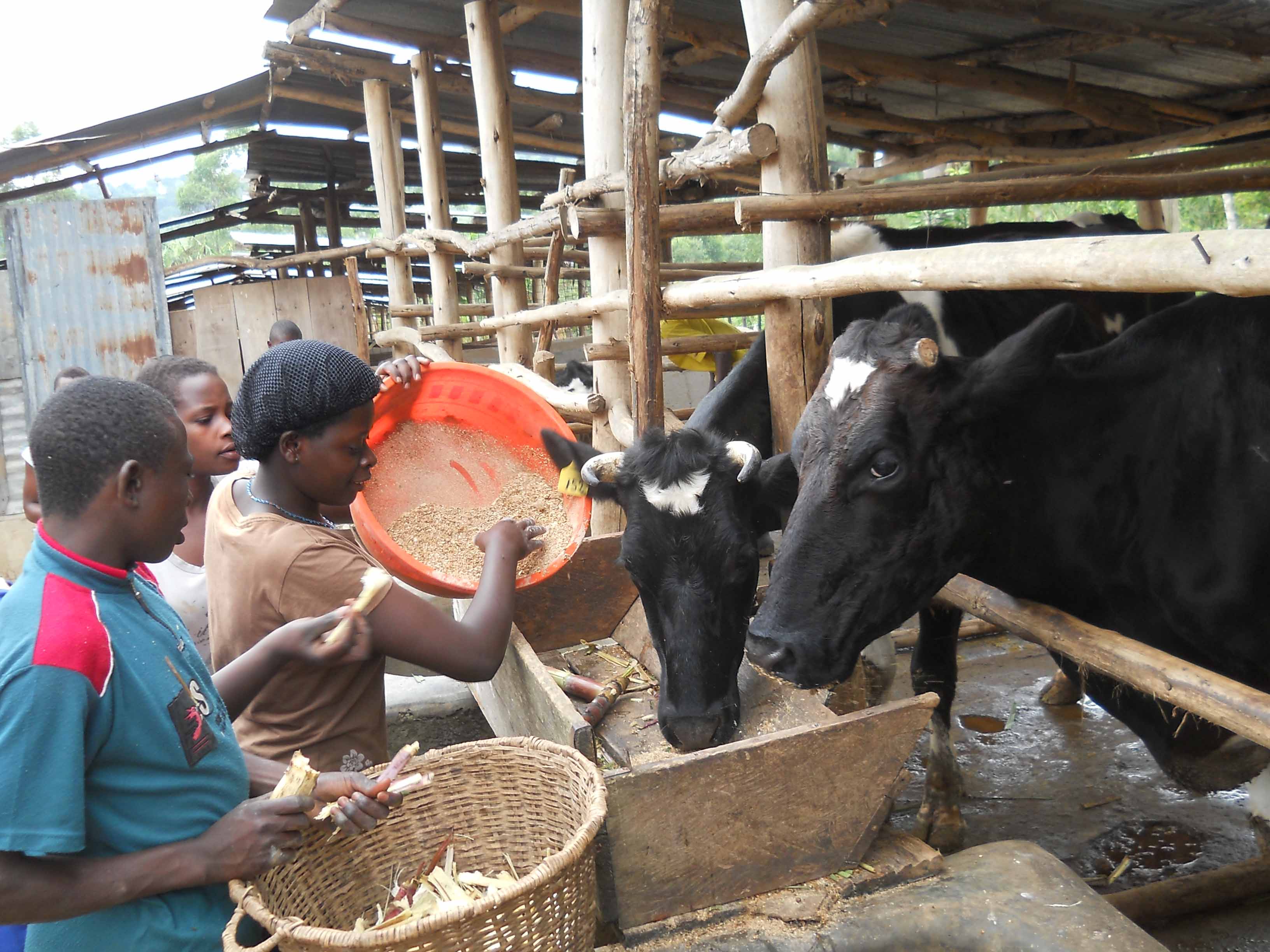Prime
The well-kept secrets of Bugisu specialty coffee boom

A coffee farmer on the slopes of Mt Elgon harvests coffee on her small farm. Photo | George Katongole
What you need to know:
- Many specialty coffee producers engage in direct trade practices, establishing direct relationships between coffee growers and buyers. This can contribute to sustainability, fair wages for farmers, and environmental conservation.
Bugisu coffee stands out as a top-tier coffee in the global market, and for good reason. Revered for its winey and fruity notes, this coffee hailing from the highland Bugisu region in eastern Uganda has gained prominence in the specialty coffee industry.
Coffee exports in 2021, for instance, totalled 6.77 million bags worth $718.57m with Bugisu A+ fetching the highest price at $5.40 (Shs20,000) per kilogramme followed by Bugisu A sold at $5 (Shs18,000) per kilogramme.
Bugisu, the leading producer of Arabica coffee in Uganda, not only boasts a rich history of sustainable coffee farming traditions but is also home to Nasaaga Coffee, an award-winning processor delivering high-quality coffee to conscious consumers worldwide.
Uganda, the third-largest coffee producer in Africa, has only recently seen its Bugisu coffee earn recognition in the specialty coffee arena. The coffee’s roots trace back to the early 1900s when British Colonialists introduced it, and the Bugisu people integrated coffee farming into their existing agricultural practices. Over the years, coffee production in the Bugisu region has experienced substantial growth, emerging as the primary source of income for numerous families.
But what makes Bugisu coffee stand out? Charles Wetaka, the senior managing director of Nasaaga Coffee Investments, unveils the closely guarded secrets behind their exceptional coffees.
The Nasaaga Specialty Coffee Foundation, a community organisation of coffee farmers situated in the villages of Mangasa around Nasaaga cliff in Bukyabo Sub-County, Sironko District, stands as one of the specialty producers dedicated to assisting a network of farmers in producing high-quality coffee products from seed to cup.
Nasaaga Coffee offers four categories of coffee products; natural processed, fully washed, honey processed and organic fully washed Arabica coffee.
Altitudes
Blessed with high altitudes, Bugisu is situated at an elevation ranging between 1,200 to 1,800 metres above sea level. This area boasts fertile volcanic soils and a temperate climate, establishing an ideal environment for cultivating coffee. The elevated altitudes facilitate slower development of coffee beans, resulting in enhanced nutrient absorption and, consequently, a more flavorful coffee.
Volcanoes
Volcanoes play a pivotal role in producing exceptional coffee due to the nutrient-rich volcanic soil they provide. This volcanic soil is just one of the diverse “microclimates” within Uganda, each contributing to its unique flavour profile. Nestled in the hidden villages of Mangasa around Nasaaga cliff in Bukyabo Sub-County, Sironko District, the sweet flavours of traditional coffee tree varieties Nyasaland and SL-14 thrive in the rich volcanic soil profiles of Mt Elgon. Uganda Bugisu coffee is renowned for its bold and complex flavour profile, attributed to the high altitude and fertile volcanic soils of the region, setting it apart from other African varieties.
Typical tasting notes for Bugisu coffee contain bright, wine-like acidity, a delightful fruity sweetness reminiscent of berries, citrus, or tropical fruits, and a medium to full body with a smooth, velvety mouthfeel. The lingering, chocolatey finish harmonises these flavours, creating a well-balanced and satisfying cup that appeals to specialty coffee enthusiasts.
Sustainable production practices
Uganda’s coffee production is largely rooted in small, family-owned farms employing around five million people in the coffee sector, making it the country’s largest export commodity with an annual worth of $550 million. Approximately 85 percent of all coffee grown is cultivated by smallholders with fewer than 2.5 hectares of land. This situation leads to low overall productivity as families grapple with choices to balance food security and income from their farms.
Addressing the challenges, Nasaaga Coffee invests back into rural coffee-producing communities, particularly supporting women and children involved in high-quality coffee production. The company empowers farmers to uphold coffee culture norms, maintain the crop’s natural attributes, and secure reliable income for their daily financial needs, including education and medical care.
“We empower our farmers so that they can take good care of the coffee by keeping the norms of coffee culture and to keep its natural attributes so that they can receive reliable income which enables them to meet daily financial requirements such as education to their children and medical care,” Wetaka says. Using a holistic approach, Nasaaga Coffee collaborates with agronomist partners from Agri-base Bio Science to provide farmers with organic pesticides. Additionally, they contribute to environmental sustainability by supplying biogas to organic farmers, mitigating tree-cutting and carbon emissions.
How Nasaaga produces high-quality specialty coffee
Nasaaga Specialty Coffee Foundation aids farmers in the production of high-quality coffee products from seed to cup. Among their services, they provide training and support to coffee farmers in adopting good agricultural practices for sustainable productivity. They also help in marketing farmers’ specialty certified coffee on the global market. Nasaaga reinvests at least 5 percent of the organisational net proceeds back into coffee-producing communities for socio-economic benefits.
Collaborating with registered farmers, they help them to embrace good agricultural practices from the nursery bed to the cup while supporting them through village savings and loan schemes to offer financial literacy, distribute seedlings, safeguard water sources, and provide scholastic materials to vulnerable school-going children.
“We want to continue working with farmers to improve their access to materials and knowledge of better farming practices. This means making fertiliser more accessible, encouraging farmers to plant shade canopies and more,” Wetaka says.
Process
While farming and processing methods may vary among farmers in Uganda, at Nasaaga Coffee, the wet method is employed. This involves using a pulping machine to remove the outer skin and pulp from the coffee cherries, followed by fermentation in water-filled tanks for 12-48 hours. The fermented beans are then washed to eliminate any remaining mucilage before being spread out in the sun to dry on raised beds or drying tables. Once the beans achieve the desired moisture content, they undergo sorting, grading, and are stored in bags until ready for export.
For natural sundried coffee, carefully selected red cherries are delivered to the Mangasa Washing Station. The cherries are floated, with floaters removed and thoroughly washed with clean water. Subsequently, an army of workers dries the cherries on clean tarpaulins for 2-3 weeks, turning them regularly every 20 minutes. The cherries are brought inside every night until reaching a moisture content of 12 percent, at which point they are bagged and hulled shortly before export. After milling, the beans are hand-sorted before being bagged in 60kg bags for export.
What is specialty coffee?
Specialty coffee refers to high-quality coffee beans that are grown, processed, and brewed with exceptional care and attention to detail.
The term «specialty coffee» encompasses a range of factors, including the quality of the coffee beans, the growing conditions, and the production processes.
Specialty coffee is made from high-quality Arabica beans, which are known for their complex flavours and aromatic qualities. These beans are carefully selected and often handpicked to ensure only the best cherries are used.




